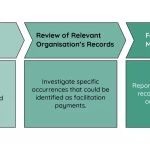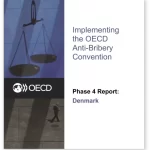An agent from another country may ask you for extra money to process paperwork. A border patrol officer may ask for a favor to allow your shipment to entry a country faster. Or even so, an employee from the Department of Motor Vehicles may be willing to give your renewed driver’s license without the need for examinations, as long as you give them a gift.
These are all examples of facilitation payments. At FAFPI, we understand these as a ‘small amount paid to a government official to speed up the performance of a routine process to which the payer is already legally entitled to’. However, depending on where you come from, you might know facilitation payments through other synonyms.
In the United States, facilitation payments are also known as grease payments. These are considered legal under the Foreign Corrupt Practices Act (FCPA). Only three other countries allow facilitation payments: Australia, New Zealand, and South Korea. However, this remains illegal under the countries’ domestic legislation, and only apply to payments conducted in foreign countries.
The reason for these countries legalizing facilitation payments is due to it being distinguished from bribes. But should that distinction exist?
Are bribes the same as facilitation payments?
Bribes can occur in many scenarios, where they can be offered or solicited in return for an illegal advantage. At first sight, bribes might seem opposite to facilitation payments, as the end goal there is to achieve something you are in the legal right to receive. However, both involve an undue use of money to gain an advantage. Because of this, they are incompatible with principles of fairness, equality, and due process. An example of legislation defining facilitation payments as bribery is the UK Bribery Act and the French Anti-Corruption law Sapin I.
In some cases, facilitation payments may be extracted by force or it can threaten the safety of staff. As the security of employees is a priority, some company policies may permit these payments in such circumstances. This highlights how facilitation payments and bribes can be one and the same. Allowing them can open the window for escalation, and even for other dangerous situations. That is how important the fight against facilitation payments is.
Due to the high variety of the scenarios for facilitation payments as well as bribes, it is important to be able to identify them when they are being requested and to register them. This process is fundamental in the fight facilitation payments, as they are a sign of corruption.
Do you agree that facilitation payments should be seen as bribes? Let us know your opinion in the comments.
Want to know more about FAFPI? Request a meeting with a member today.







